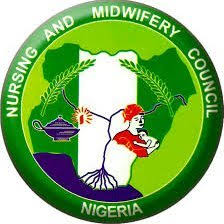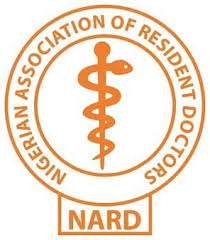It is my pleasure to welcome you to the celebration of the 2021 World Malaria Day. As we all know already, April 25th of every year has been set aside as World Malaria Day by the World Health Organization (WHO).
The theme of this year’s celebration is “Zero Malaria- Draw a line against Malaria” and it was chosen because every malaria case is preventable and every malaria death is unacceptable. In 2019, Africa accounted for 94% of the 229 million cases of malaria and 409,000 deaths reported globally. Children aged under 5 years are the most vulnerable group affected by malaria; in 2019, they accounted for 67% (274,000) of all malaria deaths worldwide. Between 2000 and 2019, malaria incidence declined by 29% and deaths by 60%. More than 1.2 billion cases and 7.1 million deaths were averted in Africa. In 2019, 6 countries accounted for approximately half of all malaria deaths worldwide, with Nigeria accounting for a whopping 23%.
Is Zero malaria really attainable? Yes, some parts of Africa have. Algeria has been certified malaria fee, while Ghana, Namibia and South Africa achieved the 2020 milestones of reducing malaria incidence and deaths by 40%, compared to 2015. Unfortunately, Nigeria is one of the malaria-endemic countries in the WHO African Region that did not achieve these milestones.
Every year that malaria spreads, health and developments bear the brunt. On the average, malaria is responsible for an annual reduction of 1.3% of Africa’s economic growth. Malaria related absenteeism and production losses cost Nigeria close to an estimated 1-billion-dollar loss annually.
Vector control remains the main way to prevent and reduce malaria transmission. AHAPN recommends protection for all people at risk of malaria with effective vector control. Two forms of vector control namely insecticide treated mosquito nets and indoor residual spraying are effective in a wide range of circumstances.
Sleeping under an insecticide treated net (ITN) can reduce contact between mosquitoes and humans by providing both a physical barrier and an insecticidal effect. High usage of such nets within a community can confer population wide protection resulting from killing of mosquitoes on a large scale. For instance, in 2019, an estimated 46% of all people at risk of malaria in Africa were protected by an insecticide treated net, compared to 2% in year 2000.
Indoor residual spraying with insecticides is also an effective way to rapidly reduce malaria transmission. However, there has been a decline from a peak of 5% in 2010 to 2% in 2019 in several regions, which may be attributed to possible resistance to pyrethroid insecticides.
As part of preventive measures, antimalarial medicines which suppress the blood stage of malaria infections thereby preventing malaria disease can be used. For pregnant women living in moderate to high transmission areas, it is recommended that at least 3 doses of intermittent preventive treatment with sulphadoxine -pyrimethamine be used
For us in Nigeria, as part of preventive measures still, it is advisable to do away with stagnant water around our houses and dwelling places which can serve as breeding ground for the mosquito parasites.
The World Health Organization (WHO) currently recommends artemisinin-based combination therapy (ACT) as the first-line treatment for uncomplicated Plasmodium falciparum malaria in Sub-Saharan Africa. The combination consists of an artemisinin derivative with a rapid effect on parasite clearance and a longer-acting drug to prevent recrudescence. The massive reductions in malaria-related morbidity and mortality in regions of high endemicity in the last decade have been in part due to the effectiveness of the ACT regimen. However, the emergence of artemisinin-resistant strains of Plasmodium falciparum from some parts of Asia has threatened these successes. Artemisinin resistance is a major threat to global health, particularly in low- and middle-income countries in which the disease burden is highest, substandard or counterfeit ACT compounds are widely available, and systems for the monitoring and containment of resistance are inadequate. Unfortunately, Nigeria is not exempted.
There is little existing knowledge regarding ACT-resistant malaria in many countries, including Nigeria, and the most recent reports of ACT treatment failures were in travellers who had recently visited African countries. Cases of early treatment failure due to possible artemisinin-based combination therapy-resistant Plasmodium falciparum malaria have been reported. All cases showed adequate clinical and parasitological responses to quinine. This is one of the reasons AHAPN chose to observe this year’s World Malaria Day, to draw the attention of Nigerians and the global community to the possibility of the gradual emergence of resistance to ACTs, and the need to re-evaluate the quality and efficacy of artemisinin-based combination therapy agents in Nigeria and other parts of Africa.
We at AHAPN are advocating for increased monitoring and surveillance to identify and contain artemisinin resistance especially in Nigeria. We are calling on research agencies such as National Institute for Pharmaceutical Research and Development (NIPRD, as well as pharmaceutical companies (especially those that manufacture ACTs) to intensify research into possible resistance of Plasmodium falciparum to ACTs in our locality, and the mechanisms for such resistance. This is very important when we remember that ACTS for now remain the mainstay of treatment of malaria and we cannot afford to have the plasmodium parasites develop resistance to this group of antimalarials. In the same vein, AHAPN is hereby calling upon the various research institutes to intensify research into the discovery and production of new antimalarial medicines that could serve as reservoirs in the event of ACT resistance being confirmed. We call upon governments to assist such institutions (including our universities), with the needed grants to facilitate production of new antimalarial moieties.
Towards achieving Zero Malaria status in Nigeria and elsewhere in the world, we at AHAPN fully endorse the WHO Global Strategy for malaria 2016-2030 which aims at:
*Reducing malaria case incidence by at least 90% by 2030
*reducing malaria mortality rates by at least 90%
*eliminating malaria in at least 35 countries by 2030
Preventing a resurgence of malaria in all countries that are malaria-free
On the local scene, AHAPN is emphasizing on the need for all to continue to adopt measures aimed at prevention of the spread of the disease, which is caused by Plasmodium species, with Plasmodium falciparum being the most dangerous.
At national level, Nigeria has been identified as one of the 11counties that carry a high burden of the disease; as such, an aggressive new approach to jump-start progress against malaria has become inevitable. A high burden to high impact response model is advocated. The features include:
*A call upon government to demonstrate the political will to reduce the toll of malaria.
*Need for strategic information to drive impact
*Better guidance, policies and strategies
*A coordinated national malaria response
AHAPN has been at the vanguard of advocacy aimed at controlling spread of malaria for quite some time. In 2019, the Association marked the World Malaria Day with pomp and pageantry, with a physical symposium, screening for the disease, donation of antimalarial medicines to health facility and press interviews on radio, television and print media.
This year, we are constrained by the Corona pandemic from having a physical celebration, hence recourse to a Zoom celebration. One very important reason for AHAPN marking the 2021 World Malaria Day is to draw national and global attention to the fact that as the global community battles the second wave of COVID-19 and possibly the third wave, there is urgent need to aggressively tackle the virus, while ensuring that other killer diseases such as malaria are not neglected. The need to maintain core malaria services cannot be overemphasized, while protecting healthcare workers and the community against COVID-19 transmission. There is a report that some countries in Africa had suspended mass insecticide net-treated campaigns in the wake of the Corona pandemic. AHAPN is encouraging Nigerians to continue with use of insecticide treated nets and indoor residual spraying campaigns, which have remained the mainstay of malaria prevention efforts in Sub Sahara Africa including Nigeria for years now. As part of celebrating this year’s World Malaria Day, AHAPN will be donating antimalarial medicines to health facilities in the Lagos area like we did in 2019.
We are most grateful to our highly revered President of the Pharmaceutical Society of Nigeria (PSN) Mazi Sam Ohuabunwa MON, OFR, FPN who has agreed to be part of this AHAPN celebration of the 2021 World Malaria Day, despite his tight schedule and the short notice. We deeply appreciate Mr President for standing by AHAPN and for identifying with us to date in all our programmes and outings. Only God can adequately reward you Mr. President.
We also appreciate our Key Note Speaker, in the person of Prof. EFO Enato, a Consultant to WHO among other feathers he is wearing. We thank our panelists, Dr. David Adje, Dean, Faculty of Pharmacy, Delta State University, Abraka, Dr. Dauda Dangiwa FPCPharm, a lecturer at the University of Jos, Plateau State and Pharm Shabi Abdulrazaq, Senior Product Manager at Elbe Pharma. I also wish to thank in a special way, members of AHAPN Drug Use Enlightenment Committee (DUEC) led by the Vice Chairman, Pharm Susan Ayetoro FPCPHarm, for working tirelessly in the last couple of years to shore up the public image of pharmacists in Nigeria and for ensuring that medicines are used rationally in Nigeria through a series of interventions such as this Zoom celebration and several such events which are usually accompanied by aggressive media publicity. We appreciate the gentlemen of the Press for standing by us all this while.
Finally, we give all thanks to God Almighty for making today’s celebration a reality.
Thank you, God bless you all
Dr. Kingsley Chiedu Amibor B.Pharm. PharmD, MPH, PGD, FPCPharm
National Chairman AHAPN




